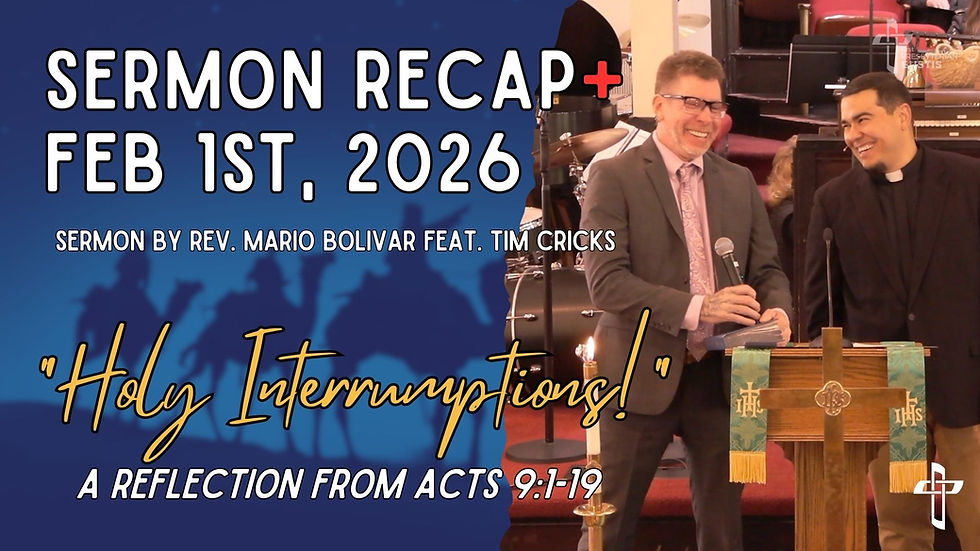The Broken Egg
- Mario Bolivar
- Apr 21, 2025
- 3 min read
Updated: Apr 24, 2025
A few days ago I came across a simple yet powerful drawing—a broken egg, "Accountability 101" its shell cracked open, with the yolk spilling out, and the reality of it before me. How a small image can remind you of such a profound life lesson.
We often overlook accountability, thinking it’s just about explaining ourselves or defending our actions. But true accountability, the kind that really makes a difference, is about owning up to what we’ve done, understanding the impact it’s had, and taking steps to make things better, not right. Accountability isn't about justice, but community. It’s about being honest, not just with others, but with ourselves too.
Think of it like this: the broken egg isn’t just about a mistake made—it’s about the mess that comes afterward, and what we do with it, the cleaning, the smell and the food that was wasted. Jesus gives us a clear picture of accountability in His teachings, he actually was accountable on our behalf. He doesn’t want us to explain away our mistakes, but to own them, handle the mess, and heal the brokenness, and reclaim our place in the community.
Jesus’ Example of Accountability
Jesus taught us about humility, especially when it comes to owning our mistakes. In Matthew 7:3-5, He reminds us to look at ourselves before we judge others. Accountability starts with us—being honest about where we’ve messed up, even when it’s hard.
Next, Jesus shows us the impact of our actions. In Matthew 18:15-17, He teaches us that when we’ve hurt someone, we go to them directly, face the consequences, and make things right. It’s not about proving we’re right; it’s about healing the brokenness we’ve caused.
And then, there's the story of the prodigal son in Luke 15. The son doesn’t make excuses for his actions—he admits he’s wrong, and the father forgives him. That’s the heart of accountability: not defending ourselves, but restoring relationships and moving forward.
Things to Avoid in Accountability
When we seek accountability, there are a few traps we can easily fall into. Here are a couple to watch out for:
Blaming Others: It’s easy to say, "It wasn’t my fault" or "They made me do it." But true accountability means owning our part. Blaming others only keeps us stuck.
Ignoring the Impact: Accountability isn’t just about saying we’re sorry—it’s about understanding how our actions have affected others and taking steps to make things right.
Letting Pride Get in the Way: Pride can stop us from admitting we’re wrong. But as Jesus teaches in Matthew 23:12, “Whoever exalts himself will be humbled.” Letting go of pride and embracing humility is key.
How to Restore and Move Forward
So, how do we take steps to make things right? Here’s a simple path to reconciliation:
Confess: Admitting our mistakes is the first step to healing. It might feel uncomfortable, but it’s necessary.
Make Things Right: Apologies are important, but we also need to take action. Just like Zacchaeus in Luke 19, true accountability means doing what we can to restore what was lost.
Ask for Forgiveness: After we’ve taken action, we need to ask for forgiveness. It’s essential to move forward.
Commit to Change: True accountability is about growth. It’s not just about saying sorry—it’s about learning from our mistakes and making sure we don’t repeat them.
When we live in accountability, we’re not just making things right with others—we’re growing closer to God. It’s not easy, but it’s how we honor Him and build stronger, healthier relationships. Accountability is a discipleship journey. Think about Judas, he killed himself, but thats wasn't accountability, accountability would been to stay, to choose life, and deal with the aftermath.
Like the broken egg, life can feel messy at times. But when we step up to our mistakes, own them, and work to make things better, we not only heal what’s been broken, but we reflect Christ’s love and grace to the world. So, let’s embrace accountability, learn from our mistakes, and keep growing. Because when we do, we shine with the love of Jesus.





Comments